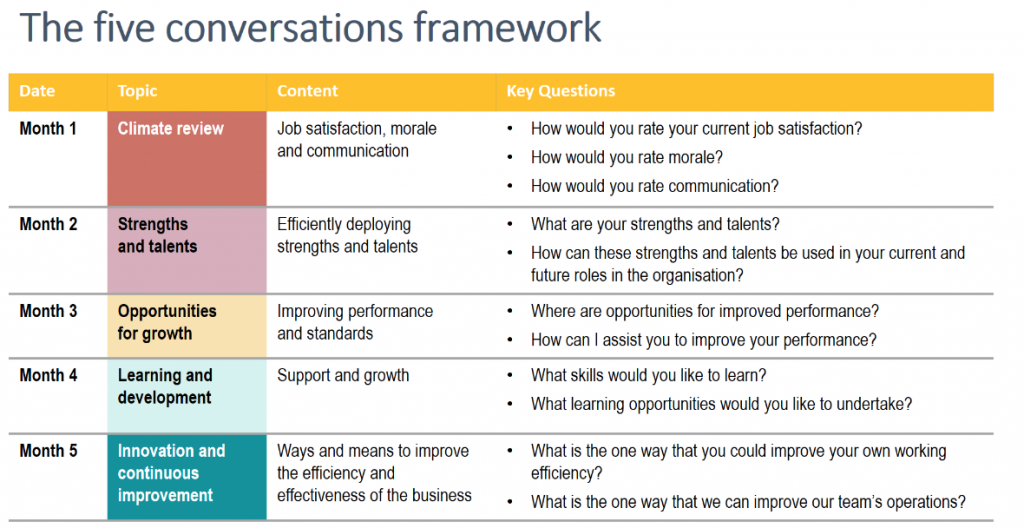
Out with Performance Reviews and in with Performance Development
Consider this scenario: You have been training for three months at your local gym and starting to enjoy the process and you are making progress with your fitness goals. You are given an option. You can have a trainer come in to observing your workout and the trainer will give you a rating on a scale of 1 to 10 at the end and explain why they have given you the rating.
Option two is the trainer will follow you around the gym, observing you in the exercise selection, technique, and intensity and give you feedback along the way, correcting your approach and offering helpful suggestions for the duration of your workout. But no ratings at the end will be given. Which would you choose?
Most people would choose the second option. Why? Because you are getting helpful developmental feedback along the way. You can adjust and change course at the time.
This is essentially the difference between performance review and performance development. The first trainer is reviewing your workout and giving you a rating. In option 2, the trainer is helping you develop and perfect your routine.
Yet in the workplace, we do lots of performance reviews, typically one or twice a year and very little of option two.
Performance Management Training Course for Managers
Managers need to practise more developmental coaching in the workplace and do less reviewing or evaluating. In fact, I would go so far as to say that if the development, coaching, and feedback are ongoing, there is no need to do a review.
Would you seriously miss getting a rating, if you had a trainer who was constantly giving you expert feedback along the way during your regular workout? I think not.
Performance management should be less about reviews and more about development. But most performance management training focuses on how to do a better review. What it should focus on is how to give better feedback, how to coach, and how to support. This goers to the heart of authentic leadership.
Some large companies and multinationals are now moving away from performance reviews to performance management. Icons such as GE, Microsoft, Google, and others are moving towards conversation models of performance management. Many are getting rid of rating systems and concentrating on regular, on-going coaching, training, and feedback. Their performance management training for managers is designed to improve the one-on-one interaction that occurs day-to-day, moment-by-moment, incident-by-incident. Feedback and development on these occasions has been recognised as paramount. And it makes perfect sense.
But many companies across all industries are still wedded to the old ritual of the once or twice a year performance review. Most people dread this event. Employees worry about the rating, managers worry about giving the rating, and the people in HR worry about the inevitable conflict this causes.
WINNERS-at-WORK emphasises this developmental approach in its performance management training courses and programs. In fact, we don’t believe in the performance review and suggest our clients replace this with the Five Conversations Framework.
Here below is an illustration of the framework:

Our performance management training for managers focuses on using this framework. Specifically, the performance management training covers these conversations:
- Climate review conversation
- Strengths and talents conversation
- Opportunities for growth conversation
- Learning and development conversation
- Innovation and continuous improvement conversation
We discuss the content of each conversation, the questions a manager needs to ask, and tips and methods of having a successful conversation. The emphasis is on training managers to use this framework effectively as a way of managing performance.
The performance management training course also covers the online website we have available to administer the framework and the roles and responsibilities of managers in the process.
We recognise that some organisations may not be ready to abandon their performance review. In these circumstances we suggest that the Five Conversations Framework be used as an ‘enabler’ to improve the performance management process. After the successful implementation of the framework, managers may wish to them transition from the performance review to the Five Conversations Framework. Out performance management training course explains how this can be achieved.
This performance management training covers the benefits of this approach too. It is flexible, open and direct, on-going, and more relaxing. These benefits set our program apart from other performance management training. The Five Conversations Framework is unique and shifts the emphasis from performance appraisal to performance development. This gets great results.

